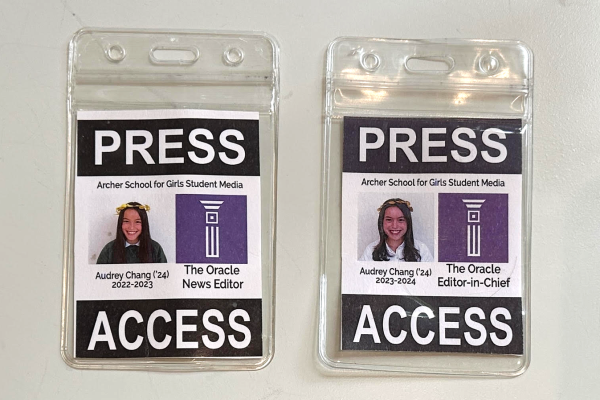Op-Ed: Seek before you speak
How should you talk about suicide?
Photo credit: Francie Wallack
When people talk about suicide, language matters. Respectful language, such as “died by suicide” or “attempted suicide,” can both destigmatize suicide and minimize harm while talking to those impacted by it. (Graphic Illustration by Francie Wallack)
May 21, 2023
Content Warning: This article mentions suicide. If you or anyone you know needs mental health support, reach out to Teen Line by calling 800-852-8336 or texting “TEEN” to 839863 if you are a teenager, or call 988 for the National Suicide Prevention Lifeline.
If a person burglarizes a bank, they have committed a crime. If a person assaults someone, they have committed a crime. But if a person dies by suicide, have they committed a crime?
Throughout history, suicide has impacted countless lives, but it is still heavily stigmatized. With the 26% increase in suicide deaths in the United States from 2001-2021, it is especially important we acknowledge and address this concerning mental health crisis. However, suicide’s complexities and the notion that it is a taboo topic scare people away from talking about it.
Suicide can be extremely painful and difficult to talk about, which is why it’s crucial to learn about the proper ways to address suicide in conversation. Words hold immense power, so the use of a single term can make all the difference.
One of the most common phrases people use to discuss someone’s death by suicide is saying they have “committed suicide.” Thousands of years ago — and still today — many countries consider suicide a crime. This is typically derived from the Abrahamic and Dharmic ideals that suicide is a sin. It is not and should not be deemed as one.
Today, even though the vast majority of countries don’t legally consider suicide a crime, they still address it as one. Creating the narrative that suicide is a crime reinforces extremely harmful stereotypes and stigmas, making it increasingly difficult for struggling individuals to reach out for help.
An additional phrase commonly used to address fatal suicides is categorizing it as a “successful suicide.”
No suicide should be gauged as successful. Success is a good thing. Dying prematurely is a tragedy.
Mental health professionals and advocates are widely encouraging alternative phrases such as “died by suicide” or “took one’s own life.” These phrases are much more respectful to those impacted by suicide and do not carry as severe of a negative connotation.
Another overlooked key component in the discussion of suicide is non-fatal suicides. In an online survey published by Plos One in 2019, respondents were asked to rate suicide-related phrases on a scale of one to five, with one being unacceptable to use and five being acceptable.
The phrase deemed as most inappropriate and unacceptable was “near miss,” and the phrase most encouraged by respondents was “attempted suicide.” Survey participants most commonly preferred “attempted suicide” because of its “perceived accuracy,” “clarity” and “neutrality.”
One respondent between the ages of 18-29 who has been impacted by suicide expressed their disapproval of the term “near miss.” The respondent said the term makes it sound like it’s a “bad thing” the person didn’t die.
There is a very fine line between destigmatizing suicide and making it into something positive. While there is a desperate need to destigmatize it, at the same time, we need to make sure we are calling suicide what it is: a devastating reality that has been around for far too long. But, we should not let suicide define us and our society.
We have the power to make a positive and impactful change and prevent suicide losses. With the right conversations, we can destigmatize suicide and make it easier for struggling individuals to reach out for help. Pointing fingers and placing blame will achieve nothing. We need to immerse ourselves in conversation and tackle suicide at its core.
So, please, watch your words; it can make all the difference.



















